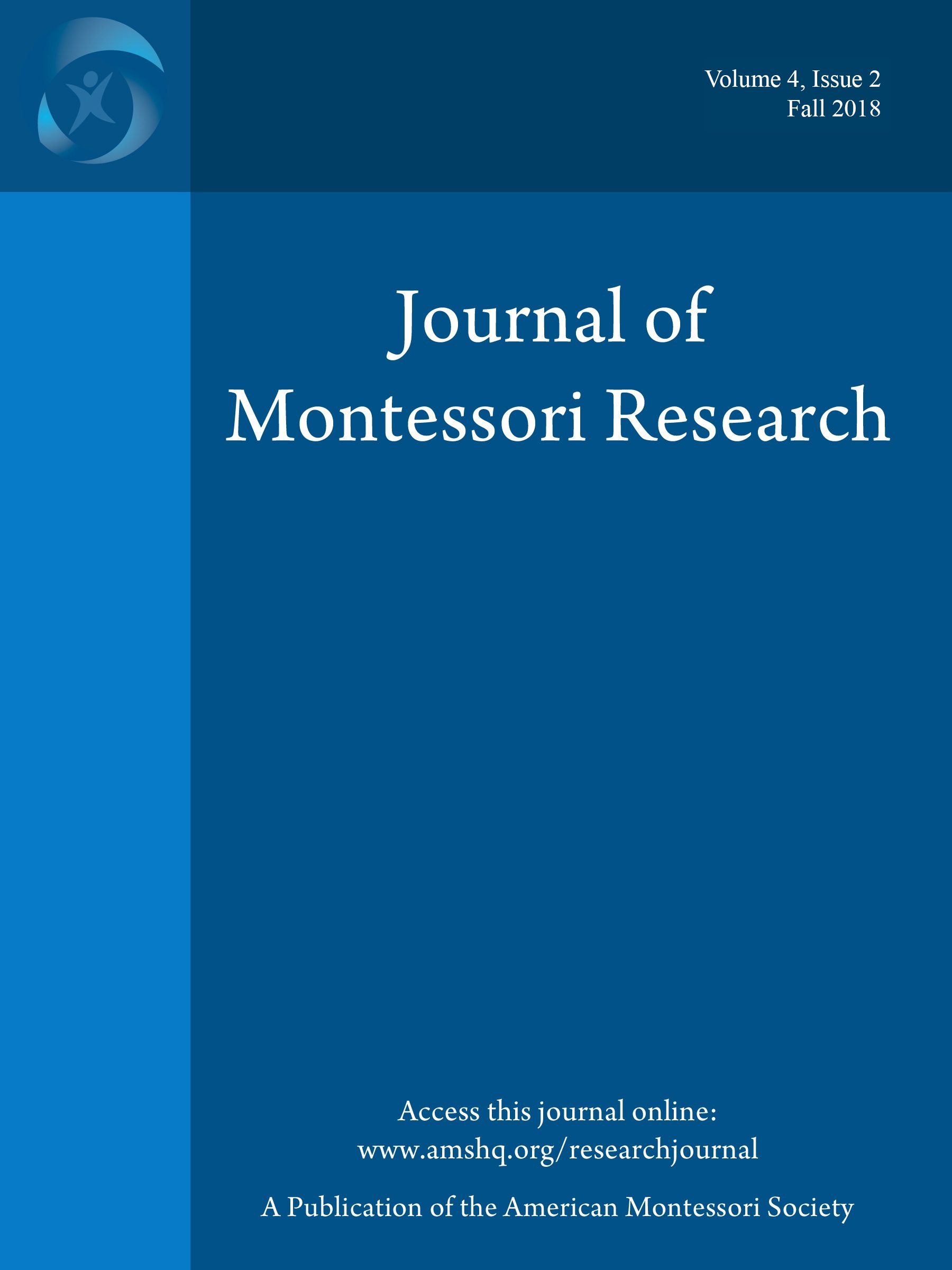Introduction of Montessori Education to a remote Indigenous Early Childhood program: A study of the ways in which Aboriginal students respond
DOI:
https://doi.org/10.17161/jomr.v4i2.6715Emneord (Nøkkelord):
indigenous, Aboriginal, early childhood, Montessori, student responseSammendrag
This article explores the ways Ngaanyatjarra students in Australia respond to Montessori pedagogy in a remote Aboriginal early childhood context. The article initially presents key literature pertaining to early childhood education, Aboriginal education, and Montessori education in Australia. The qualitative methodology underpinning the research is subsequently outlined. The approach emphasized in this research is that of interpretivism. The data analysis process highlighted three headings: concentration and engagement, student autonomy, and student independence. The findings of this research indicate the potential for Montessori pedagogy as a viable alternative practice of education for remote Aboriginal early childhood contexts, as Montessori pedagogy may align more harmoniously with the cultural dispositions of Ngaanyatjarra students. Finally, recommendations are presented in light of the research.


